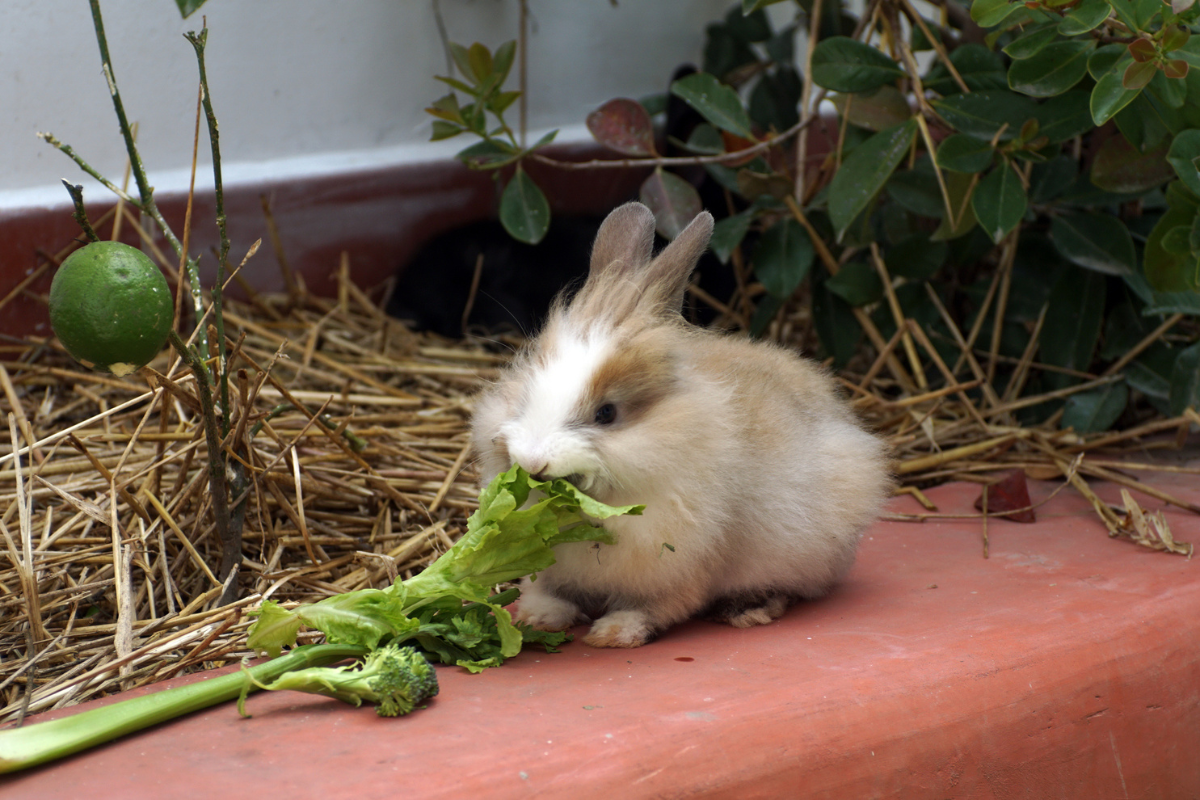As responsible rabbit owners, we strive to provide our furry companions with a balanced and nutritious diet. One vegetable that has sparked curiosity among rabbit enthusiasts is celery. With its crunchy texture and apparent health benefits, it’s natural to wonder if celery deserves a place in our rabbits’ culinary adventures.
In this comprehensive guide, we will delve into the nutritional value of celery, explore its potential benefits for rabbits, and address any risks or precautions associated with its consumption. We will also provide detailed preparation and serving suggestions to ensure your rabbit enjoys celery safely and deliciously.
Nutritional Value of Celery
Celery is a low-calorie vegetable that is packed with nutrients. It is a good source of vitamins, minerals, and fiber.One cup of chopped celery contains the following nutrients:* Calories: 16
Carbohydrates
3.9 grams
Protein
0.7 grams
Fiber
1.6 grams
Vitamin K
37% of the Daily Value (DV)
Vitamin C
14% of the DV
Potassium
10% of the DV
Folate
9% of the DV
Manganese
8% of the DV
Vitamin B6
6% of the DV
Riboflavin
4% of the DV
Thiamin
3% of the DV
Niacin
3% of the DV
Pantothenic acid
3% of the DV
Copper
3% of the DVCelery is also a good source of antioxidants, which can help to protect the body from damage caused by free radicals.
Vitamins
Celery is a good source of vitamins K, C, and B6. Vitamin K is important for blood clotting and bone health. Vitamin C is an antioxidant that helps to protect the body from damage caused by free radicals. Vitamin B6 is important for brain function and the production of red blood cells.
Minerals
Celery is a good source of potassium, folate, and manganese. Potassium is important for maintaining fluid balance in the body and regulating blood pressure. Folate is important for the production of red blood cells and DNA. Manganese is important for bone health and metabolism.
Fiber
Celery is a good source of fiber. Fiber is important for digestive health and can help to lower cholesterol levels and blood sugar levels.
Benefits of Celery for Rabbits

Celery offers several potential benefits for rabbits, making it a valuable addition to their balanced diet.
Hydration
Celery is a good source of water, which is crucial for rabbits to maintain proper hydration. Rabbits have a relatively low thirst drive, so providing them with water-rich foods like celery can help ensure they stay adequately hydrated.
Dental Health
The fibrous nature of celery promotes dental health in rabbits. As rabbits chew on celery, the abrasive texture helps wear down their constantly growing teeth, preventing overgrown molars and dental issues.
Digestive Support
Celery contains dietary fiber, which is essential for a healthy digestive system in rabbits. Fiber helps regulate gut motility, preventing digestive problems such as constipation and diarrhea. Additionally, celery contains prebiotics, which support the growth of beneficial bacteria in the rabbit’s gut, promoting overall digestive health.
Risks and Precautions
Celery is generally safe for rabbits in moderation, but there are a few potential risks to consider.
Excessive Consumption
Excessive consumption of celery can lead to digestive upset, including diarrhea and gas. To prevent this, limit celery intake to a small amount as an occasional treat.
Choking Hazards
The stringy texture of celery can pose a choking hazard for rabbits. To minimize this risk, cut celery into small pieces before offering it to your rabbit.
Preparation and Serving Suggestions
Preparing celery for your rabbit is a simple process that involves washing, cutting, and removing any potential hazards.
First, thoroughly wash the celery under running water to remove any dirt or debris. Cut the celery into small, bite-sized pieces to prevent your rabbit from choking. Avoid feeding your rabbit the leaves, as they can be difficult to digest.
Creative Serving Suggestions
To encourage your rabbit to eat celery, try serving it in creative ways. You can mix it with their regular hay or pellets, or stuff it into a toy for them to chew on. You can also freeze celery and offer it as a refreshing treat on hot days.
Monitoring and Adjustments
After introducing celery to your rabbit’s diet, it is essential to monitor their well-being closely for any signs of digestive issues or adverse reactions.
If your rabbit experiences any digestive discomfort, such as diarrhea or gas, reduce the frequency or amount of celery offered. Monitor your rabbit’s response and adjust accordingly to find the optimal balance that provides nutritional benefits without causing any adverse effects.
Frequency and Amount
The frequency and amount of celery offered should be adjusted based on the individual rabbit’s needs and responses. Start by offering small amounts (1-2 tablespoons) once or twice a week and gradually increase the quantity and frequency as tolerated.
If your rabbit shows no signs of digestive issues, you can gradually increase the amount of celery offered to a maximum of 1/4 cup daily. However, it is important to observe your rabbit closely and adjust the frequency and amount as needed to ensure their well-being.
Summary
In conclusion, celery can be a healthy and enjoyable treat for rabbits when offered in moderation and prepared appropriately. Its nutritional value, dental benefits, and digestive support make it a valuable addition to a balanced rabbit diet. By following the guidelines Artikeld in this guide, you can provide your rabbit with the joy of munching on this crunchy vegetable while ensuring their well-being.
FAQ Summary
Can rabbits eat celery leaves?
Yes, rabbit can safely consume celery leaves. They are just as nutritious as the stalks, offering a good source of fiber and vitamins.
How much celery can I give my rabbit?
As a general rule, rabbits should not consume more than 1-2 tablespoons of celery per day. Excessive consumption can lead to digestive issues.
Can celery cause bloating in rabbits?
Yes, excessive consumption of celery can contribute to bloating in rabbits. It is important to offer celery in moderation and monitor your rabbit for any signs of discomfort.